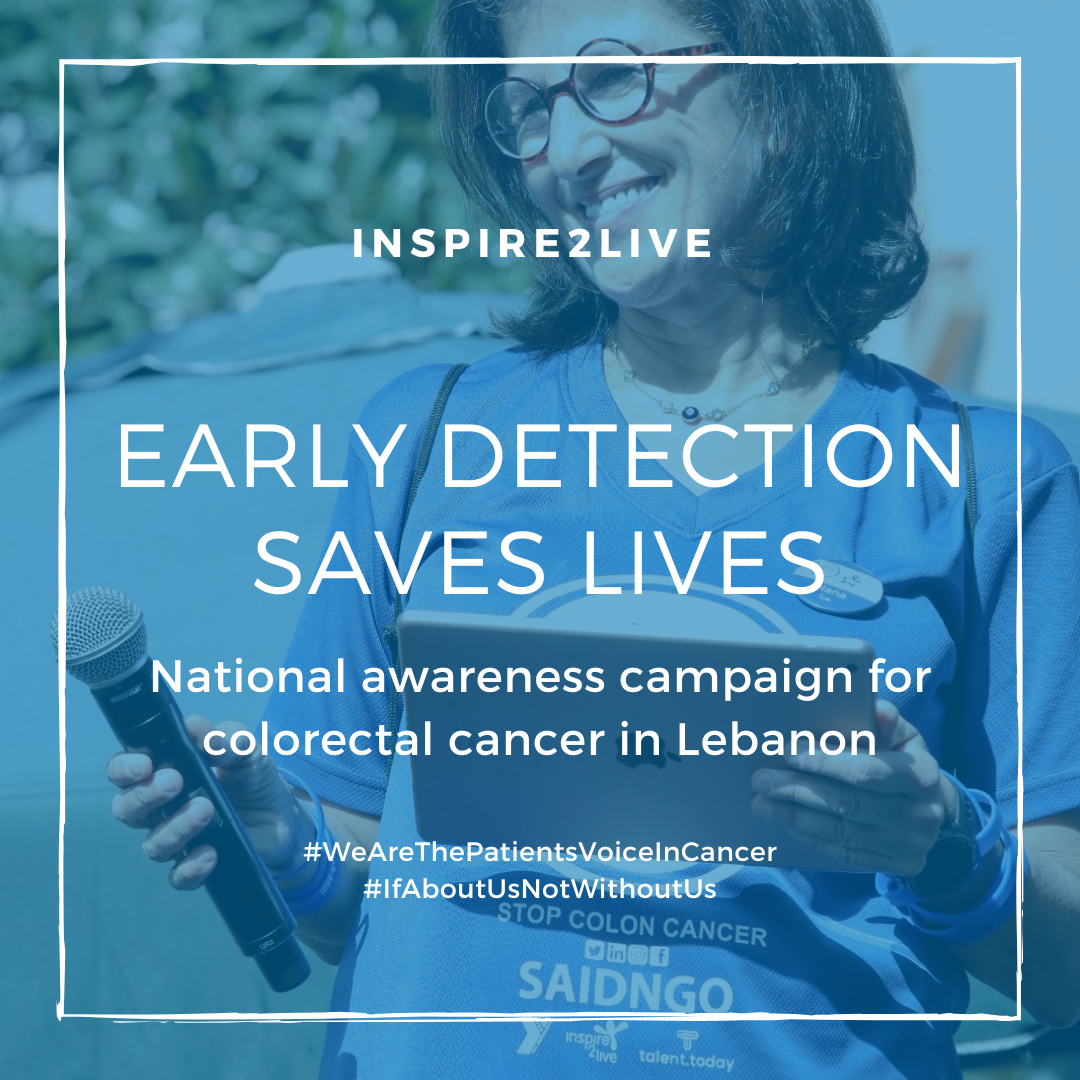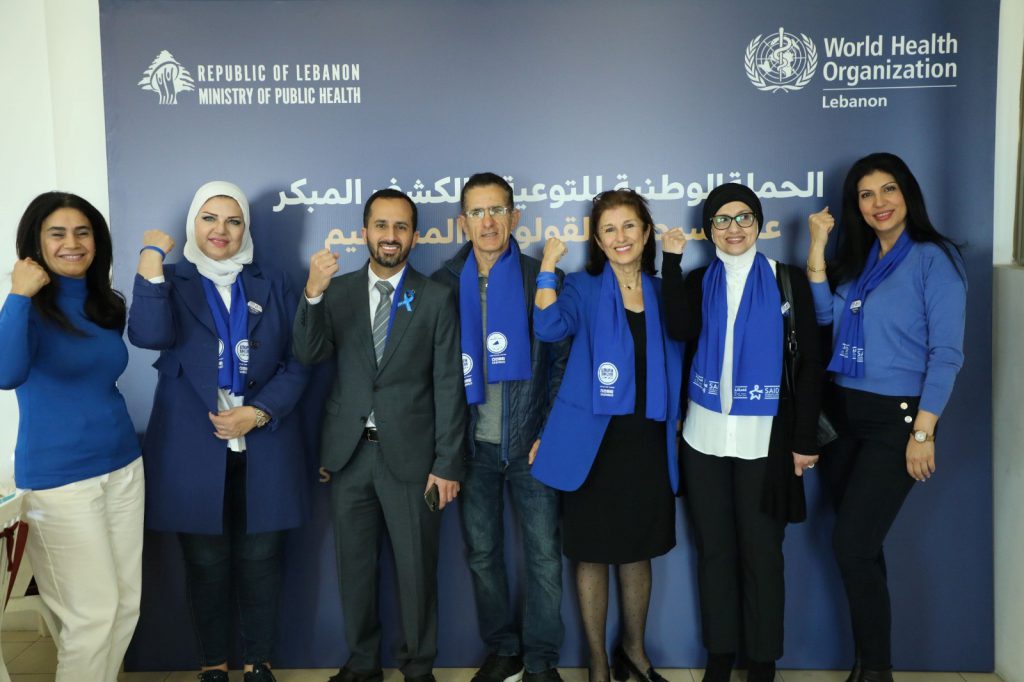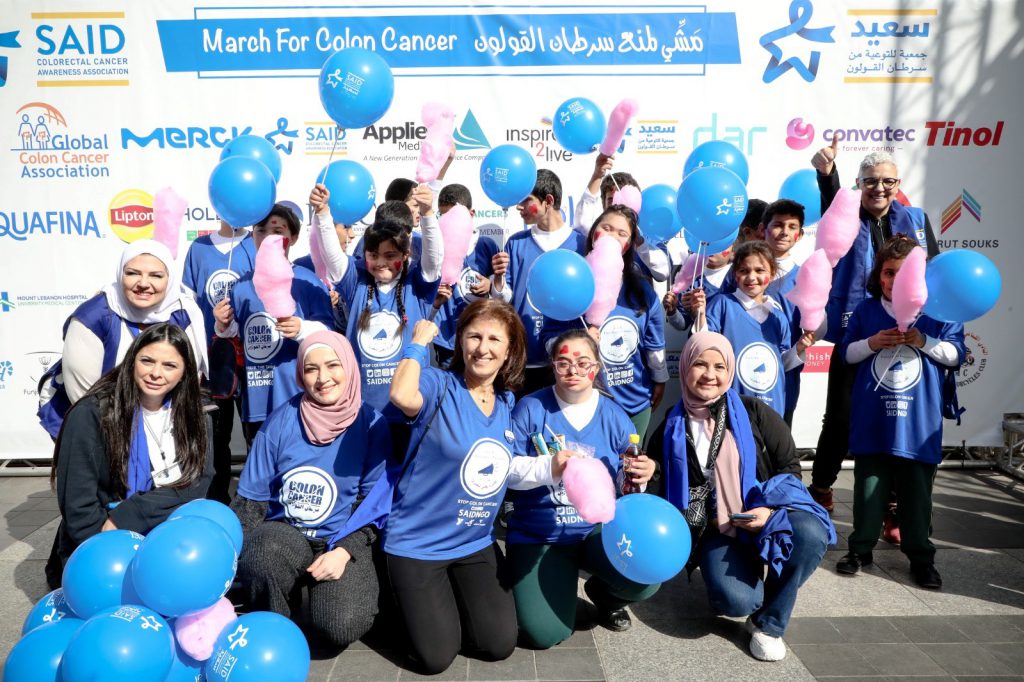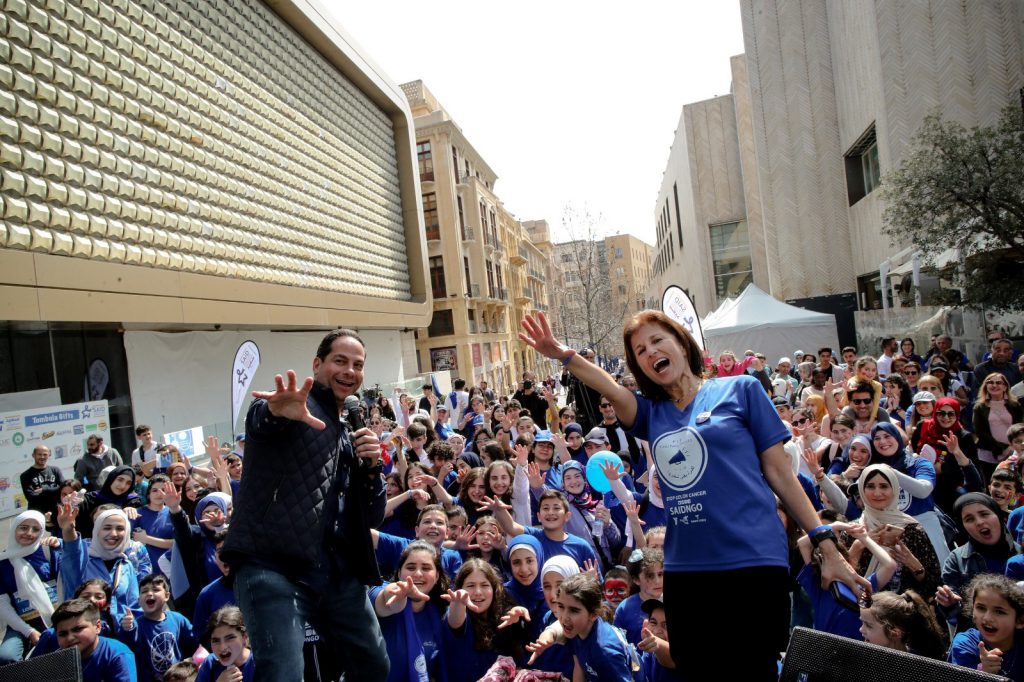Colorectal cancer is the second and fourth most common cancer among women and men in Lebanon respectively. In recognition of the urgent need to raise awareness about this type of cancer and promote early detection and treatment, SAID NGO launched the National colorectal cancer awareness and screening campaign which has been taking place in Lebanon throughout the month of March.
The main message of this campaign is that early detection can save lives. When caught early, colorectal cancer is highly treatable and the chances of survival are significantly increased. However, many people are reluctant to get screened due to fear or misconceptions about the screening process. The colorectal cancer awareness campaign seeks to address these concerns and encourages people to take control of their health by getting screened. In addition to promoting screening, this campaign also emphasises the importance of a healthy lifestyle in preventing colorectal cancer. A diet rich in fruits, vegetables and whole grains, together with regular exercise and avoiding smoking and excessive alcohol consumption can all reduce the risk of developing colorectal cancer.
Through educational initiatives, social media campaigns and community outreach programmes, this campaign is making strides in educating the public about this disease.
The launch of the national colorectal cancer campaign, which took place at the Ministry of Public Health on March 3 2023, was also an excellent opportunity to engage with key stakeholders. The campaign was inaugurated under the auspices of H.E. the Minster of Health of Lebanon, the Director of the World Health Organization (WHO) Beirut office, dignitaries such as H.E. the American Ambassador in Lebanon, healthcare professionals such as the President of the Order of Nurses, representatives from the Order of Physicians and the Oncology Society, colorectal cancer survivors and members of the public. The involvement of the Ministry of Public Health and WHO particularly underscores their commitment to promoting public health and reducing the burden of colorectal cancer.
This launch kicked off a month of scheduled activities across Lebanon including the :
- SAID NGO organised a dress in blue walkathon which took place on Sunday, March 5 2023, at the heart of Beirut, the capital of Lebanon, and we are proud to report that it was a great success, with over 1 000 participants from the local community. During the walkathon, participants dressed in blue took part in a 4K walk and other fun activities to help promote the cause. The event also provided an opportunity for individuals to connect with local health professionals and learn more about colorectal cancer screening options. We are grateful for the support of Inspire2Live for sponsoring the production of the blue T-shirts for our volunteers and for all those who participated and helped make the event such a success.
- A series of seminars across the country are being held in different locations in Lebanon throughout the month of March. These seminars aim to provide information about the risk factors, prevention strategies and early detection of colorectal cancer. The speakers discuss the importance of a healthy lifestyle, including regular physical activity, a balanced diet, as well as avoiding smoking and excessive alcohol consumption. They also explain the screening options, colonoscopy and faecal immunochemical test, highlighting the benefits and limitations of each.
- Webinars targeting the public are being held virtually on Facebook providing the opportunity to introduce providers followed by professional healthcare sessions aiming to highlight the role of healthcare providers and patient advocates in the fight against colorectal cancer in Lebanon.
- several media appearances also have been scheduled throughout the month.
Gladys Honein Abouhaidar & Hana Nimer
Patient Advocates Inspire2Live
In addition to the awareness campaign, SAID NGO is also a patient advocate group. We convey the main concerns/needs/ voices of patients to key stakeholders. For example, due to the current economic crisis, many patients with stoma are facing challenges accessing stoma bags. We connected with suppliers from outside the country to donate about 500 stoma bags to be dispensed within six months among those who have permanent stoma. Also for patients on chemotherapy who were facing challenges accessing essential medications, we took part in a WhatsApp group solely responsible for identifying and exchanging drugs available in the country based on physician’s prescription.




